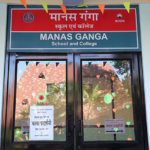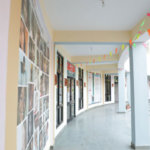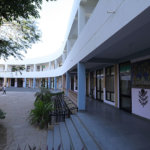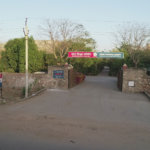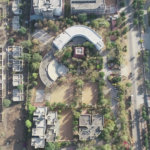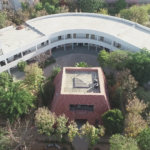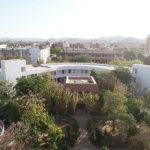The creation of Bodh Gaon made us aware of the several practical hurdles one encounters in space creation such as those of connectivity and transport, electricity, water, and telephonic connectivity, matters of land allocation, and problems rooted in the remoteness of the campus which prevented adequate mobilization of people from the communities and other staff. Those needs that expressed themselves in our educational journey that could not find a place in our rural campus for the above reasons found their places with the creation of what we now refer to as Bodh Parisar, then a simple stretch of plant-less land and now a lush green campus of around 10 bighas full of children’s laughter crackling in the air and the space vibrant with the collective will to chalk out meaningful educational journeys for all.
The campus houses our central operations office, and has, over the years, developed into a space that accommodates teaching, research, training, documentation, administration and financial accounting. As our rural and urban bodhshalas began to firmly take charge of the successful, meaningful completion of the primary education of our children and the need for similar achievement of secondary education started to emerge from within the community itself, we responded to this organic need through the creation of a senior secondary school, also by the name Manas Ganga, in the Bodh Parisar, Kukas. The campus has residential facilities in the form of a hostel, two guest house blocks and a girl’s student hostel for students of Manas Ganga. Our hostels can accommodate around 150 people who require to avail of the facility of staying on the campus for various programmatic purposes (training, exposure visits, etc). The campus also has five training halls, four of which are subject-specific training halls (one each for Hindi, English, EVS, and Mathematics) and one is a collective gathering and discussion space, which we call our ‘Kalajan’. As a part of the school’s infrastructure, we also have subject specific resource rooms which are centres of subject research and pedagogical tools. A central library, laboratories for computer and science education, our central offices, an open theatre for school and organizational events and gatherings and green and clean play spaces for children (and adults!) are all a part of our campus. The campus has seen training conducted for a mix of around 7000 Bodhshala teachers, government school teachers and principals and other organization’s personnel.


